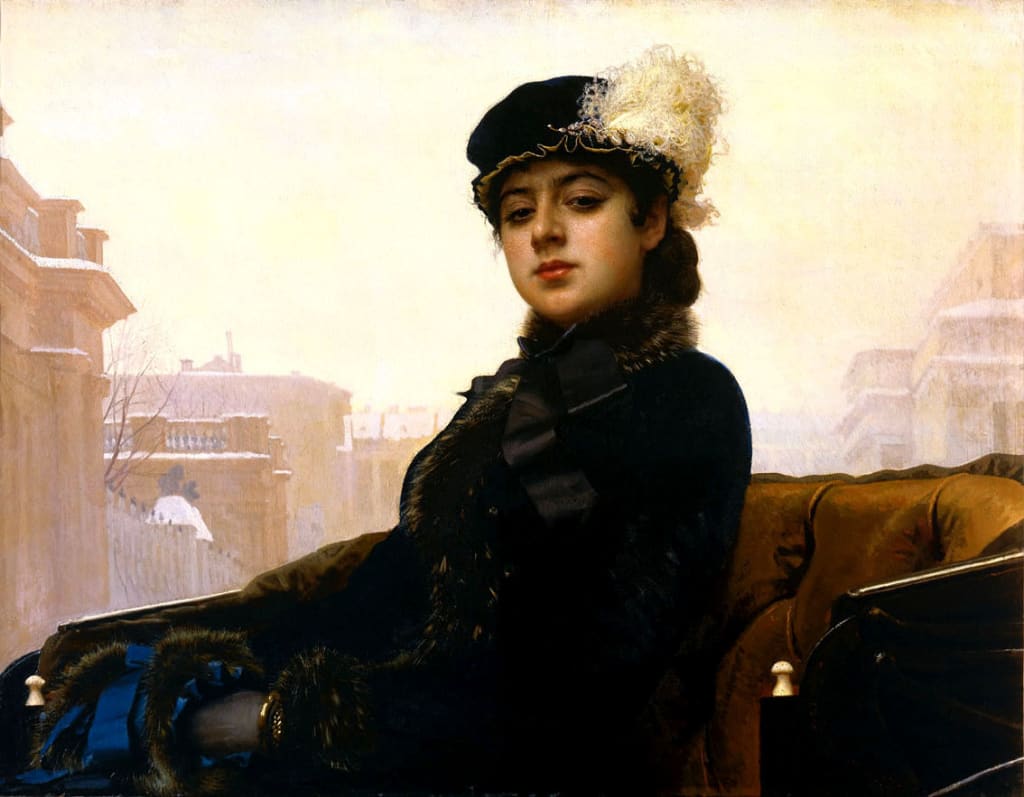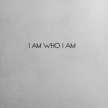
I was never much into classical literature. Growing up in Russia, I had to read a lot of those books as a part of the school program. I can't say any of them truly enchanted me as much as my extracurricular reading - the Harry Potter series, Agatha Christie's mystery books, and Ray Bradbury's sci-fi among others. I always thought classical books were quite depressing, even boring at times. The dry sense of humor and long descriptions put me to sleep. In high school, when we started reading bigger, more serious works like Crime and Punishment by Dostoyevsky and War and Peace by Tolstoy, I just could not understand what the fuss was about. Sad and full of contemplations and inner dialogues was Crime and Punishment, and long, strings of unnecessary sentences that take up half a page was the latter.
In college I also didn't read much classical literature because all I had time and energy for were textbooks. One of the biggest things I struggled with after college was this feeling of not learning anything new; it felt like I wasn't growing as a person because there wasn't much new information being processed by my brain. I started missing school and studying because at least I was putting knowledge in my head on a regular basis. A-student withdrawals, as I call them. Meanwhile, as I was feeling stagnant, my husband started reading Russian literature in attempts to understand me and my culture better. He now says Crime and Punishment is one of his favorite books ever; in several months he has read multiple fundamental Russian works by Dostoyevsky, Chekov, Tolstoy, and Bulgakov. That's when it struck me: I could give another swing at these books I despised so much in high school and see what I could gain from them; in the end, that was completely new territory for me.
I'm not sure why I chose to read Anna Karenina in particular. Maybe because it was never a part of my school program and I haven't had a bad experience with it, or maybe because I wanted to read something else by Tolstoy that wasn't War and Peace. I don't know. I did want to do my country proud and be able to say "yes, I have read this famous book by this author, yes, it is as great as they say". One thing I know for sure: I am really glad I chose to read it above all the others as now it stands to be one of my personal favorites and I will no doubt read it again some day.
So what changed in me since high school that made me love this book so much? I definitely matured in these 5 years, but I can't say my taste in books has changed that much; I still consider sci-fi and fantasy my favorite genres to read. I guess being away from home has made me appreciate my culture a bit more, but having more experiences and growing as a person have prepared me to comprehend all the subtleties and nuances of the classical Russian literature. I now understand why Tolstoy is considered to be one of the greatest writers of all time - his language, and way of writing is so easy to read, but not primitive, rather complex and smooth at the same time, makes his works some of the finest ways to really tap into the Russian culture of the 19th century. Even though the books are rather old and one must keep in mind that times aren’t quite the same now, the overall human problems and thoughts are trending to this day. People really haven't changed that much when you look at what concerns us in the modern day and age - it is still relationships, social status, politics, religion, etc. This book touches on all of those subjects, and what is particularly charming to me is that it does so from many different points of view; a peasant, to an aristocrat, to an estate owner. Each of them have different opinions and concerns about all the same things.
The book starts by describing a couple of main characters with no sign of Anna herself. As she appears in the book, one does not even realize that it is indeed her, as she is referred to by her first and patronymic name for awhile. Because the book is called Anna Karenina I was quite surprised by such a big number of main characters (there are at least five). I would later come to the conclusion that I would much prefer it be called something other than her name, as the book is so much more than just the story of Anna. I can't even say she is my favorite character, as I connect more to others; she disappointed and pissed me off at times as well as made me feel pity, joy, and confusion, sometimes all at once.
If I had to name one thing that amazed me the most about Anna Karenina is Leo Tolstoy's understanding of women. Given that it came out in 1878, I hardly realized that it was possible for a man at that time to know and understand in such small detail a woman's spirit, her thoughts, her suffering, her craziness, her ways of doing and thinking about things. Quite honestly, even with the resources and research we have in the modern times, I would still be amazed if anybody could describe women as accurately as Tolstoy did almost a 140 years ago. I just kept thinking that he must have observed women so closely that in the end he started seeing patterns and recognizing particular behavior and that's why female characters in his book seem so real and genuine, each in her own way and according to her status. Particularly interesting is his description of Anna as she goes through the rejection of society and almost everybody she knows. Her feelings toward her husband, son, and lover, and her bold comeback were so unusual for her time. I'd be surprised if Tolstoy was inspired by somebody else's story; it would almost have to be his own fantasy about a situation and a woman's response based on his observations of the behavior.
Another thing that surprised me was the accuracy with which he described different layers of society, from the working folk, to the bureaucrats - all the various groups of people that in the end made up the Russian population of that time. Once again, I applaud him on his research; it is truly fascinating that somebody could capture the essence of those groups so exactly. One must be an exceptional communicator and have a profound understanding of the human psyche to be accepted by your servants, your equals, and those above you in the social status. Only then, imbued with a sort of trust by these different groups, can one represent them in a work so truly and accurately, show the good sides and the bad, and as a result not be rejected by those very groups. Tolstoy definitely touched on some hot topics, like his description of the soldiers going to fight the French; society praised them for their bravery when in reality they were faulted people running from their problems to the fields of battle - the rich, bankrupted from gambling, cheating husbands, running from responsibilities, the poor, tired of taking care of their families. Tolstoy got a lot of backlash for representing the soldiers like that, particularly because the feeling of patriotism is very strong amongst Russian people. Sometimes I think that we are born with that feeling, without anybody teaching us that we should be that way.
Anna Karenina is not just a love story - it's a story about love amongst other things, the purpose of life, religion, politics, friendship, family, war, and the list could go on and on. It talks about a choice between being happy because you are fulfilling your purpose and having a family; a choice between doing what's best for you in the long-run and what your heart desires in the moment; a choice to keep on living in shame or die and cease to suffer. I think of this book as a slice of cake - multiple layers of different social groups, genders, roles, that together make up Russia as Tolstoy saw it. A complicated labyrinth of thoughts and choices that together make up a beautiful design of a society so dynamic and striving to live, to survive, and to, ultimately, be happy. It will make you question how well you actually know people closest to you, your opinions on various topics you thought were clear, and your overall view of the opposite gender. If a piece of literature can make you feel all these things, isn't it worth reading? I think so.
I tried to find out what the best translation of this book into English is and what I saw was a separation of opinions - some thought the classic translation of Constance Garnett is the best, others that the popular one by Richard Pevear and Larissa Volokhonsky, and still others that the new translation by Rosamund Bartlett or Marian Schwartz. The one that appealed to me personally is quite popular and came out in 2000, mainly because one of the translators is a native Russian speaker. I felt that she could really understand the essence of what Tolstoy was trying to say and translate it to English most successfully. I, of course, had an advantage to read it in Russian, and if you can, do that too. It is always better to read books in the original as some things always get lost in the translation. The Russian language is also very intricate and to successfully translate it you must really understand all of its undertones and nuances as well as the very nature of the things described; ideally you must spend some time in Russia or amongst Russian people.
As to my journey into the classical literature of my native land, I know it is only beginning. I told myself the next monumental work I would read must be War and Peace. Tolstoy has inspired me to leap into what I had dreaded quite a bit when I was younger, and I am glad he did so - what a wonderful world I have discovered. To think that I could have gone all my life without reading such a wonderful piece of literature is scary, and I feel truly relieved now. Take a risk, my friends! Who knows - you might like Anna Karenina as much as I do.
About the Creator
Alex Bare
A dance-loving foreigner who moved across the world to fulfill her dreams.






Comments
There are no comments for this story
Be the first to respond and start the conversation.